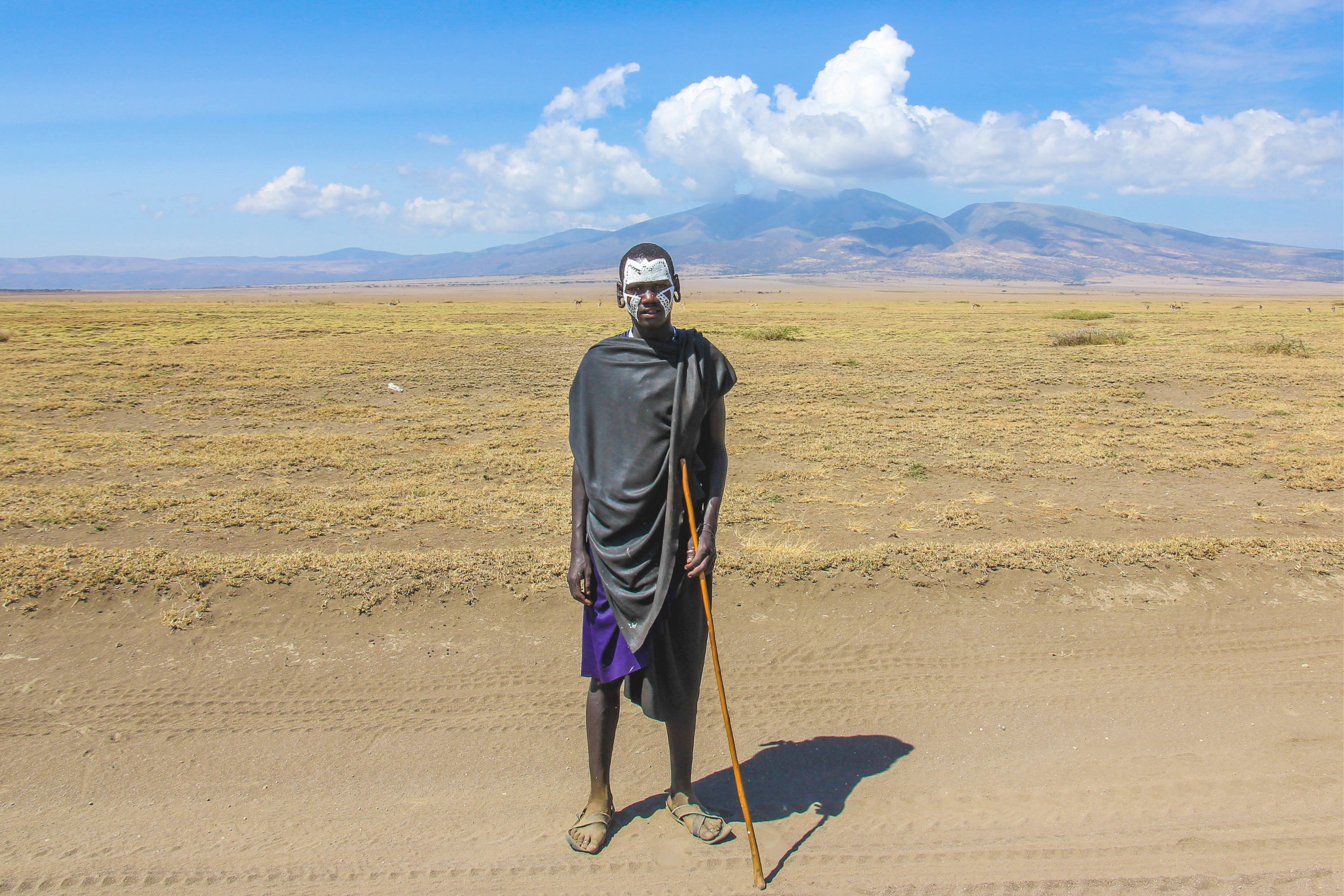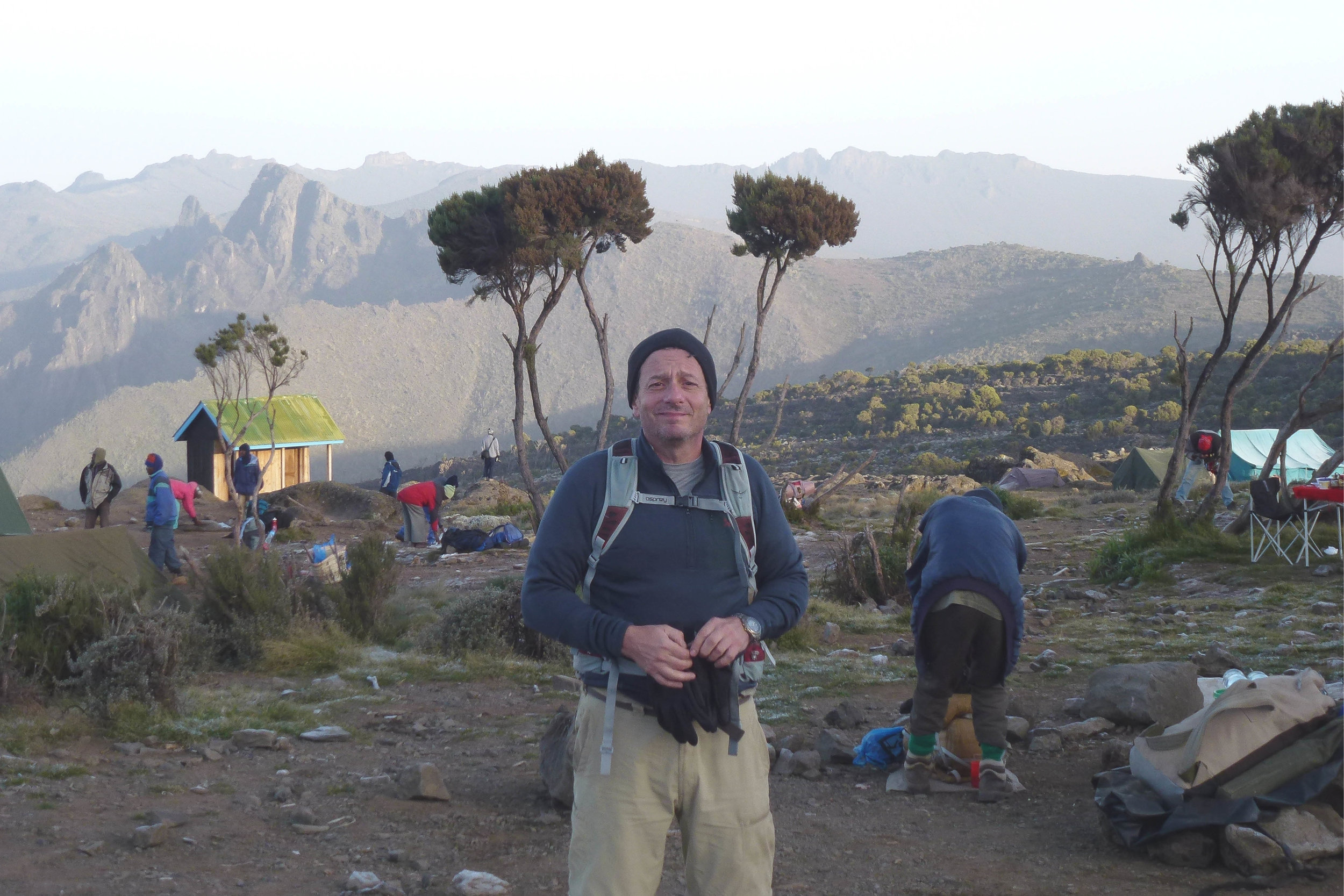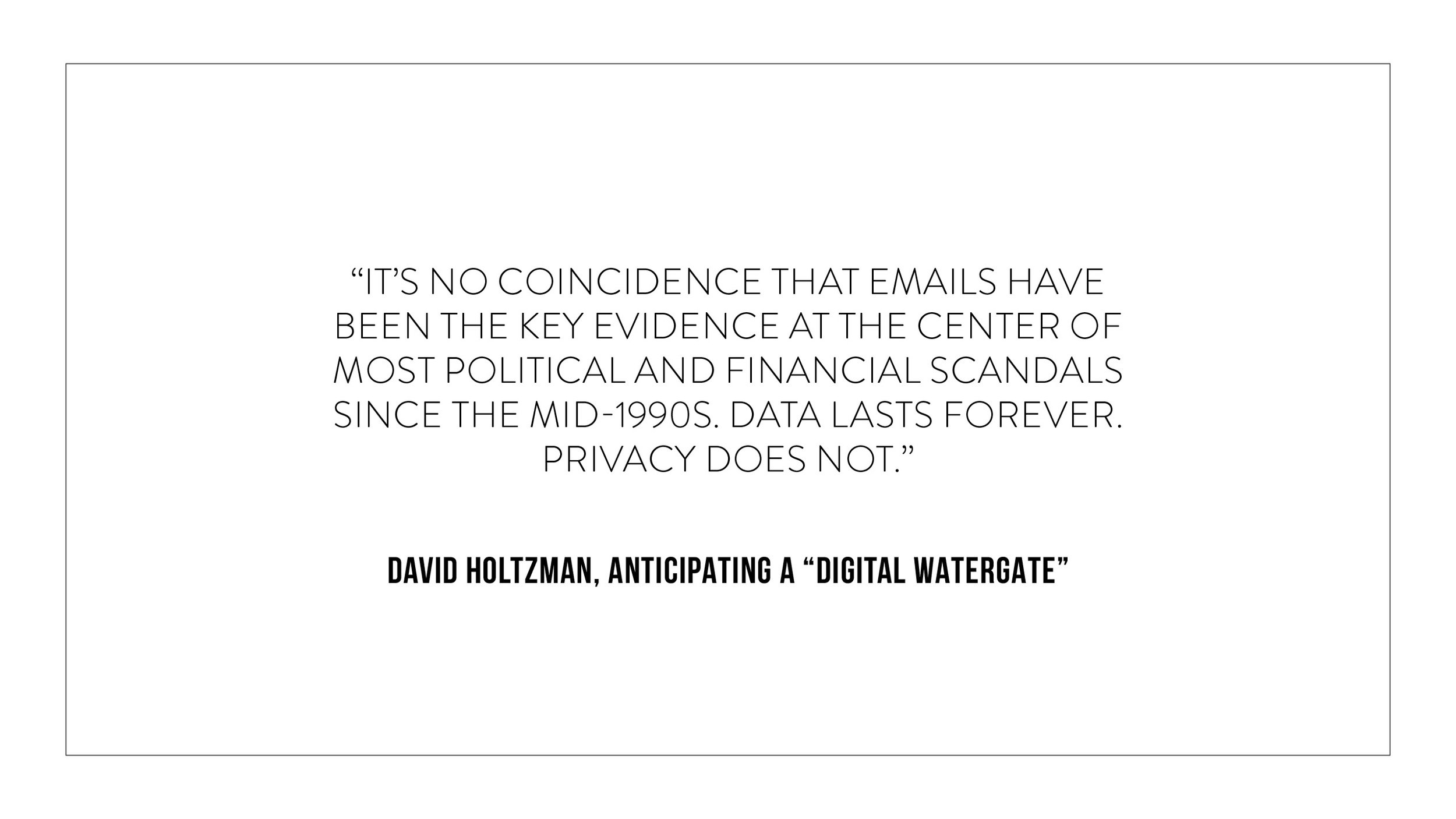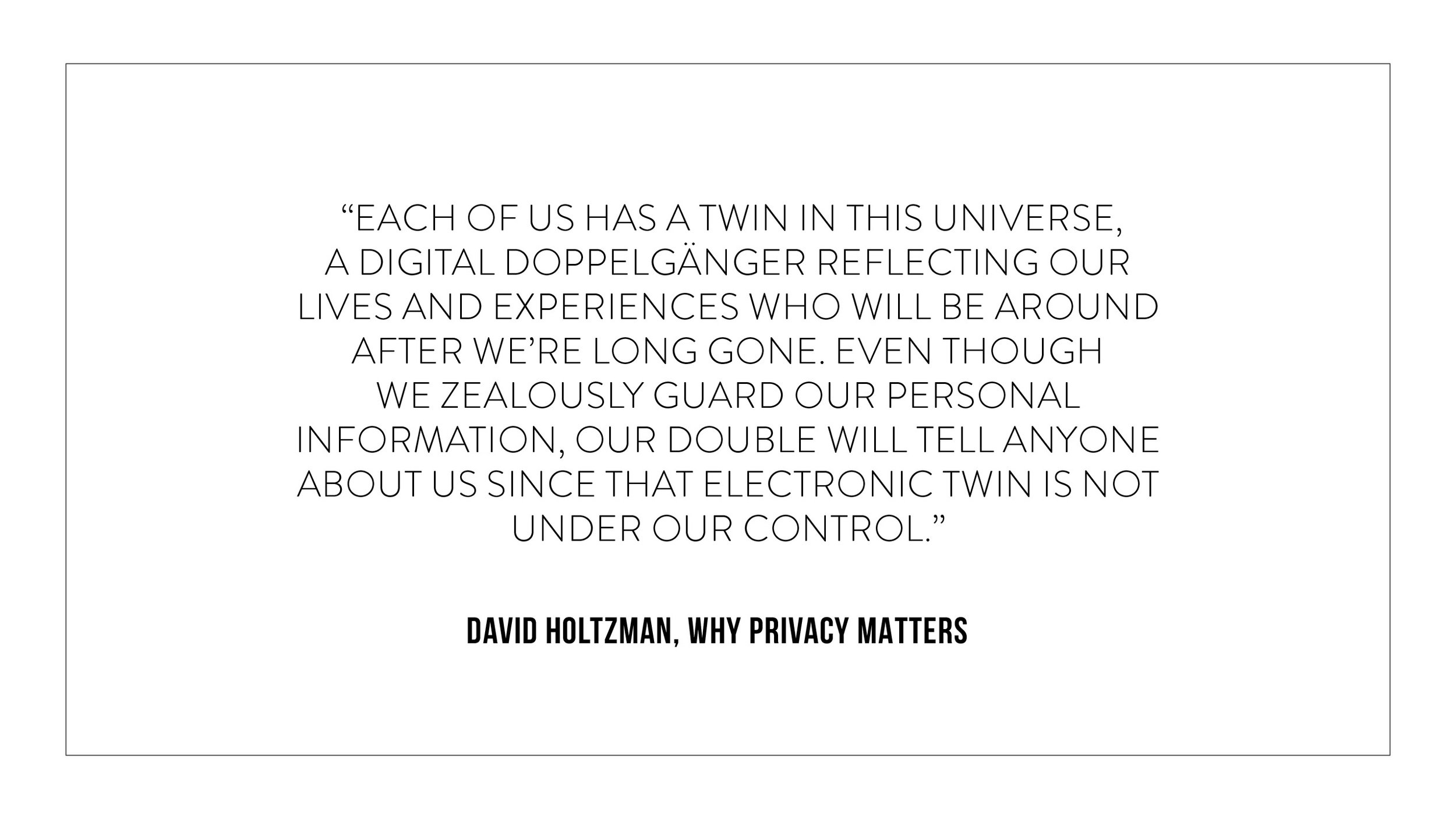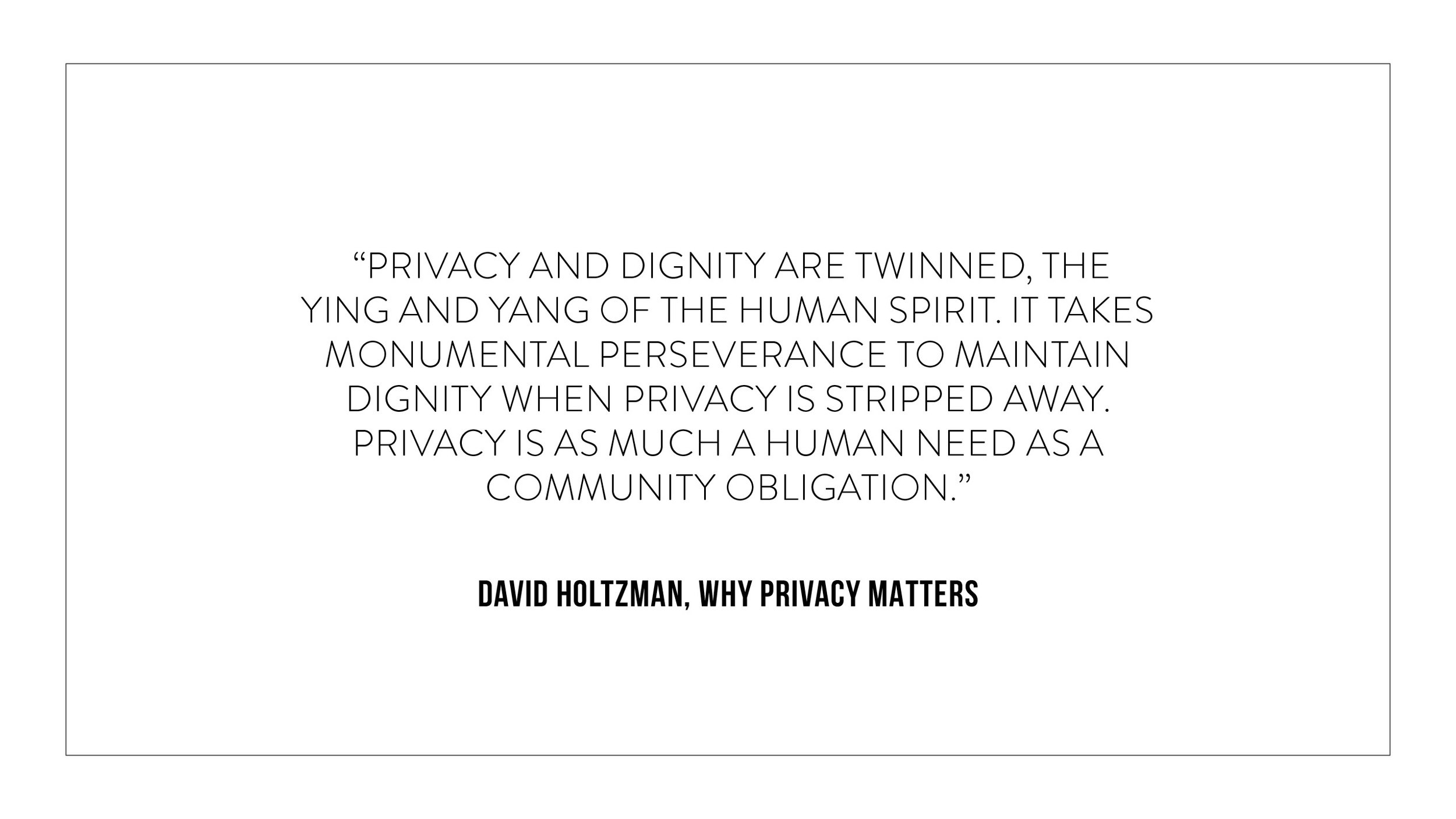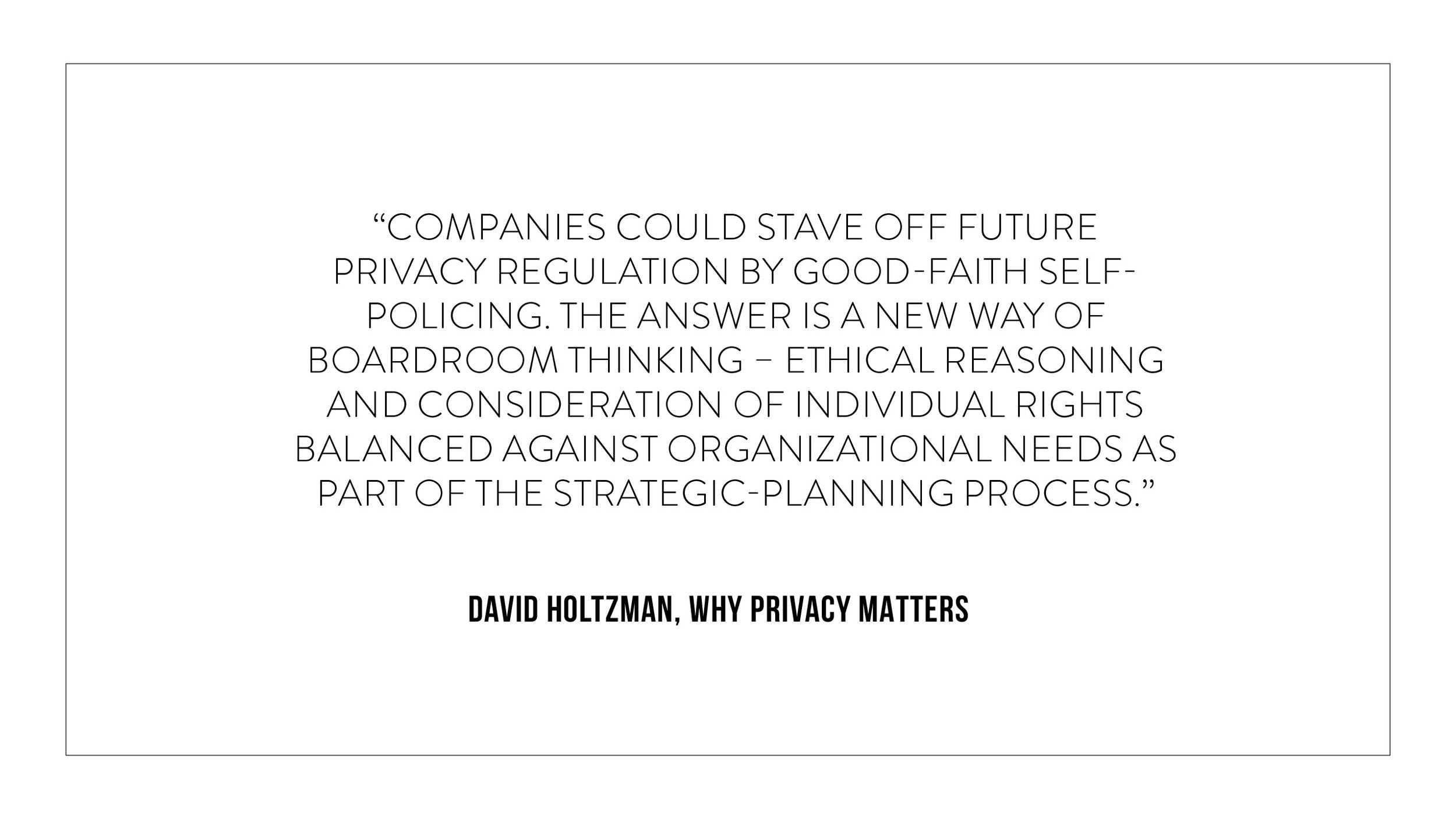ALL IS NOT LOST – RECLAIMING OUR PRIVACY IN THE 21ST CENTURY
Privacy, as we’ve known it, is dead. Once protected by physical boundaries and laws, it is overwhelmed in our digital age by ubiquitous networked data and poorly protected by legal systems so antiquated they’re rendered effectively useless.
Many of us resent this pervasive access to our Personally Identifiable Information (PII). Few are happy; even fewer understand the complexities of the tradeoff between security and privacy that drives government policy, and personalization and privacy that defines our online commercial experience. In both cases, the nuances are deliberately obscured by one-sided legalese.
I believe now is the time for a revitalized definition of privacy for the 21st century delineated by ethical, transactional relationships between organizations and their constituents; governments and citizens; and companies and consumers. This new concept will empower us to recognize and leverage the value of our PII and encourage companies to brand themselves as “privacy friendly,” increasing revenue through transparency, not deception or theft. Governmental issues are more complex and will require enhanced transparent legislative and judicial oversight.
I’ve not come to this conclusion lightly. I’m an information-technology security expert, so I’m certain my vision of 21st century privacy is viable. I began my career as a cryptographic analyst, military codebreaker, Russian linguist, and submariner for the U.S. Naval Security Group, and later as an analyst at the Defense Special Missile and Astronautics Center targeting the Soviet Manned Space Program. As Chief Scientist of IBM’s Internet Information Technology Group, I managed the development of products and services to encrypt and sell digitized content known as Cryptolopes. My book Privacy Lost: How Technology is Endangering Your Privacy (Wiley) predicted how privacy would be permanently compromised. My monthly ethics and privacy column, “Flashpoint,” was featured in CSO (Chief Security Officer) magazine and my privacy-related essays have appeared in Wired, Business Week, CNET, and other magazines.
I’m also an early-stage Internet pioneer. As CTO of Network Solutions and manager of the Internet’s master root server in the late 1990s, I oversaw the explosive growth of the commercial Internet from 500,000 to more than 20 million domain names by the end of the decade. I understand the Internet’s strengths and challenges. It was created for serviceability, not security, and its inherent architectural vulnerabilities still exist today. While it will never be secure, it will always be valuable, and I know how to mine its further potential.
I’m dedicating my expertise to benefit companies and consumers. As a senior Booz Allen Hamilton associate, I designed and built Minerva, a database and text-retrieval system used by NATO and Wall Street before being acquired by IBM. I’ve been an advisor to high-tech companies in Silicon Valley, New York, Europe and Washington, D.C. I’m the author of several IT patents and have been a regular commentator for major news media, including Bloomberg Television, BBC, CNN, The New York Times, Business Week, and The Washington Post. I was also Chief Technology Officer for Senator Evan Bayh and security advisor for General Wesley Clark during their presidential runs.
I’m an experienced businessman and entrepreneur, executing forward-thinking visions. As CEO and Chairman of The Opion Company, a venture-backed startup company I founded, I developed and patented advanced marketing intelligence technology. I’m currently president of Globalpov, a business-services company analyzing critical ways technology and society interact. I’ve been a corporate marketing consultant for large corporations, including Amazon.com, and a board member for privately held companies in the U.S., Canada and Singapore, as well as not-for-profit organizations. Deeply committed to education, I’ve served on the University of Pittsburgh Information Sciences School board of visitors for nine years, taught high-tech marketing strategy to MBA students at American University, Washington, DC, and developed and taught a University of Pittsburgh entrepreneurship class.
There are few generalists with my background in technology and philosophy who’ve been part of the military industrial complex. I’m a polymath who views our world from multiple perspectives with degrees in computer science (University of Maryland) and philosophy (University of Pittsburgh); graduate work in computer science (Johns Hopkins University); and an honors certificate in Russian studies (Defense Language Institute). I have a passion for democracy, righting wrongs, and sharing access and opportunity equitably, with a global business perspective.
I’ve spent the past decade traveling the world observing how diverse people utilize technology to solve real-world problems. While hiking the Amazonian basin and the glaciers of Antarctica, driving dogsleds in Lapland, climbing Mount Kilimanjaro and traveling around the Serengeti during the Wildebeest migration, I’ve made a point of interacting with indigenous peoples, including the Masai in Tanzania, the Achuar in the Amazonian rainforest, and the Sami Reindeer people in the Arctic. I’ve observed young Bhutanese monks sending emails while spinning prayer wheels, Mongolian nomads text by hurling cell phones into the air to engage a cell tower, and the Sami herding their flocks of reindeer using helicopters and cell phones. Each encounter illustrates how technology – a global resource as important to emerging economies as clean water and a fungible currency -- should augment lives, not overwhelm centuries-old culture. To be economically advantaged, people need to take the best technology has to offer while retaining their heritage.
So this is me, a thoughtful observer and humanist who appreciates what it means to be a global consumer citizen today. I see a future of privacy found, not lost, and have the experience and long-term perspective necessary to broker key conversations between today’s top technologists, companies and consumers to transform our ideas of what’s possible.
As a senior statesman of the information economy, I envision filling a unique role helping to define and negotiate a renewed compact between organizations and consumers establishing 21st century privacy -- one company or organization at a time. These compacts must be voluntary, offer value to all parties, and the terms of usage must be transparent and durable. I welcome opportunities to work with visionary companies, corporate boards and advocacy organizations to drive this transformation.
All quotes BELOW are from: David Holtzman, Privacy Lost: How Technology is Endangering Your Privacy, Jossey-Bass, 2006.




